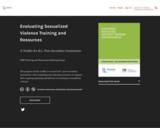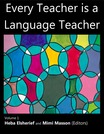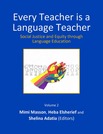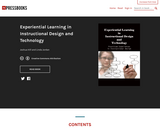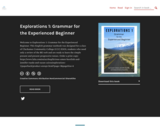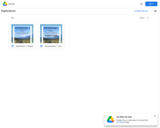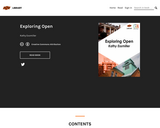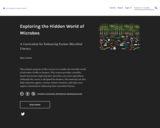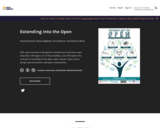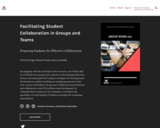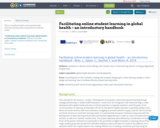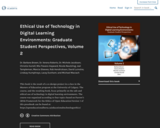
Short Description:
This book is the result of a co-design project in a class in the Masters of Education program at the University of Calgary. The course, and the resulting book, focus primarily on the safe and ethical use of technology in digital learning environments. The course was organized according to four topics based on Farrow’s (2016) Framework for the Ethics of Open Education.
Long Description:
Click on Volume 1 to read the first book in this series.
This book is the result of a co-design project in a class in the Masters of Education program at the University of Calgary. The course, and the resulting book, focus primarily on the safe and ethical use of technology in digital learning environments, and is the second volume in the series. The course was organized according to four topics based on Farrow’s (2016) Framework for the Ethics of Open Education. Students were asked to review, analyze, and synthesize each topic from three meta-ethical theoretical positions: deontological, consequentialist, and virtue ethical (Farrow, 2016). The chapters in this open educational resource (OER) were co-designed using a participatory pedagogy with the intention to share and mobilize knowledge with a broader audience. The first section, comprised of four chapters, focuses on topics relating to well-being in technology-enabled learning environments, including the use of web cameras, eproctoring software, video games, and access to broadband connectivity. The second section focuses on privacy and autonomy of learners and citizens in a variety of contexts from schools to clinical settings. In each of the seven chapters, the authors discuss the connection to the value of technology in education, and practical possibilities of learning technologies for inclusive, participatory, democratic, and pluralistic educational paradigms. The book concludes with reflections from the course instructor gained over two iterations of teaching the course.
Word Count: 40312
ISBN: 978-0-88953-472-8
(Note: This resource's metadata has been created automatically by reformatting and/or combining the information that the author initially provided as part of a bulk import process.)
- Subject:
- Applied Science
- Arts and Humanities
- Business and Communication
- Communication
- Computer Science
- Education
- Higher Education
- Philosophy
- Special Education
- Visual Arts
- Material Type:
- Textbook
- Provider:
- University of Calgary
- Author:
- Christie Hurrell
- David Luinstra
- Dr Barbara Brown Dr Verena Roberts Dr Michele Jacobsen Christie Hurrell Nicole Neutzling Mia Travers-hayward
- Dr Michele Jacobsen
- Dr Verena Roberts
- Lindsay Humphreys
- Mia Travers-hayward
- Michael Maciach
- Nicole Neutzling
- Rob Hendrickson
- Date Added:
- 12/23/2021


